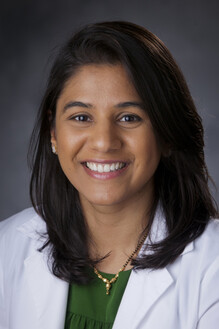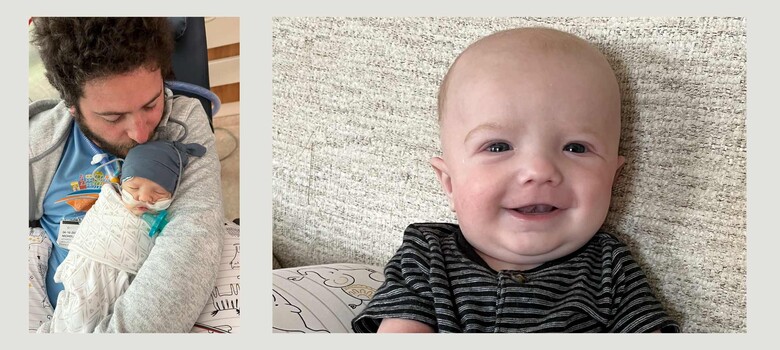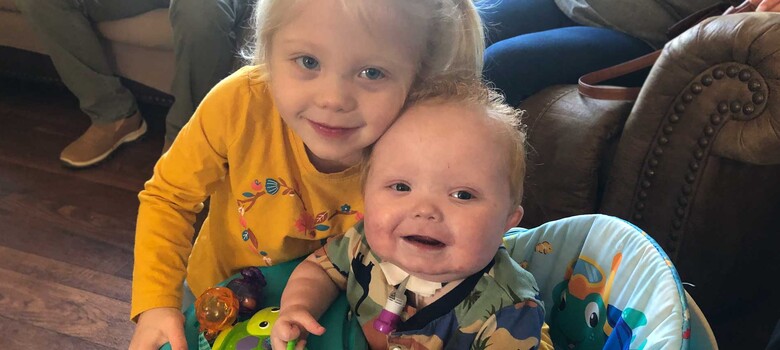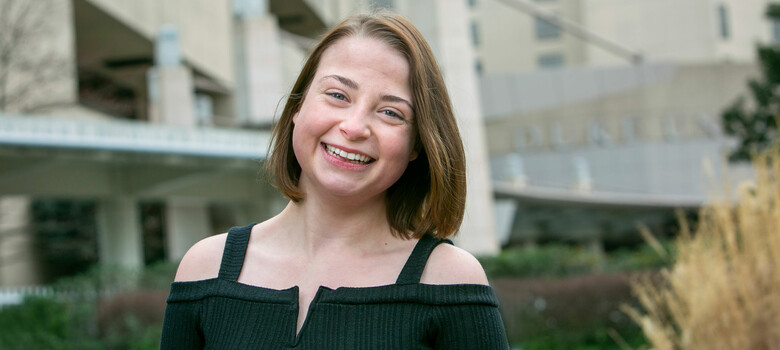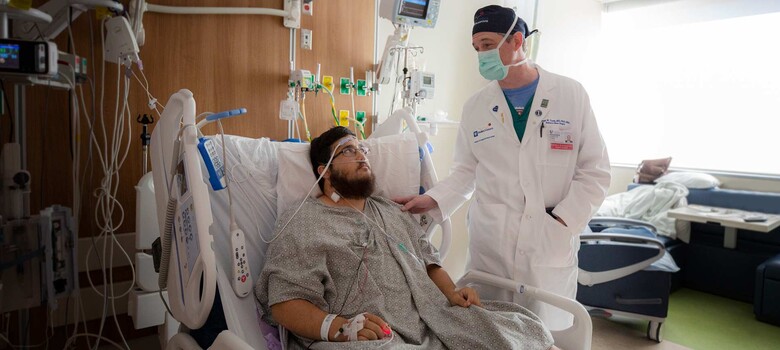Duke Clinic Provides Development, Feeding Support to Children with Complex Heart Defects
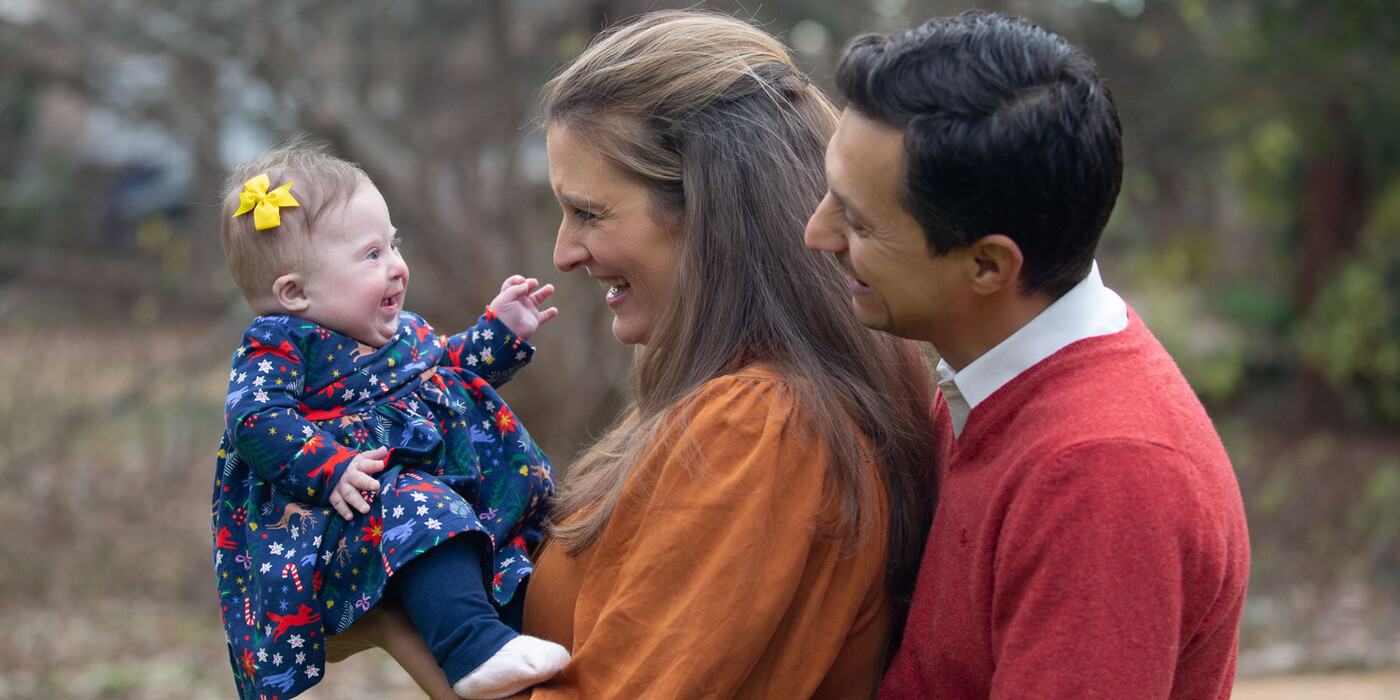
Izabel Westmoreland-Liao, left, is stronger than ever thanks to Duke’s Pediatric Cardiac Neurodevelopmental Clinic.
After undergoing heart surgery, four-month-old Izabel Westmoreland-Liao struggled to eat, even with a supplemental feeding tube. Nothing her parents tried worked. After weeks of sleepless nights, Izabel’s mother, Kate Westmoreland, called Duke’s Pediatric Cardiac Neurodevelopmental Clinic (PCNC) -- a specialized follow-up program for children with congenital heart disease. Experts assessed Izabel and created a customized plan to get her back on track. Now Izabel is gaining weight, sleeping better at night, and meeting developmental milestones ahead of schedule. “They truly cared for Izabel and wanted her to thrive,” Westmoreland said. “She’s our happy baby again!”
How Congenital Heart Disease Can Disrupt the Natural Feeding Process
Children with congenital heart disease -- structural heart problems that are present at birth -- have an increased risk of growth, feeding, and developmental problems1 due to setbacks associated with hospitalization, heart surgery, and other factors, according to Deesha Mago-Shah, MD, a pediatrician and medical director of the Pediatric Cardiac Neurodevelopmental Clinic (PCNC).
“We take feeding for granted sometimes,” Dr. Mago-Shah said. It requires a lot of muscle coordination among the mouth, cheeks, throat, and esophagus. “Babies who've had any kind of interruption in learning the natural feeding process may have trouble learning those motor patterns and need extra support.”
A Follow-Up Program for Children with Heart and Developmental Issues
By bringing together qualified pediatricians, nurse practitioners, nurses, neurologists, therapists, psychologists, dietitians, and social workers, Duke’s Pediatric Cardiac Neurodevelopmental Clinic helps children like Izabel achieve the best outcomes possible. The clinic welcomes children ages three and younger who were born with heart defects and have other complications. Many have undergone heart surgery or catheterization within the first six months of life.
Clinic staff makes feeding recommendations, manages feeding tubes, monitors weight gain, supports neurodevelopment, coordinates with other specialists and outpatient therapies, and helps families navigate insurance and other issues. The clinic serves as a central point of contact that parents can reach directly via phone or text during business hours.
Needing More Support
Izabel Westmoreland-Liao was exactly the kind of child the Pediatric Cardiac Neurodevelopmental Clinic was established to help. Before she was born, Izabel was diagnosed with Down syndrome, also called trisomy 21, and two heart defects: a ventricular septal defect and patent ductus arteriosus. At four months old, she needed heart surgery, and her parents chose Duke. The surgery went well, but a combination of factors made it difficult for Izabel to feed afterward. She was discharged with a nasogastric (NG) feeding tube, and her parents opted to follow up with a feeding program that was closer to their home.
“We had gotten her feeding again with an ultra-preemie bottle nipple and NG feeds. But she just had a horrible six weeks after her surgery,” said Izabel’s mom, who is a pediatric oncologist. “She was crying all the time, and she was wanting to eat all the time and struggling…she was tired, and she couldn't sleep. She was so uncomfortable, and we were all exhausted.”
A Solution for Izabel
When Izabel’s NG tube came out accidentally in September 2022, Westmoreland remembered Duke’s Pediatric Cardiac Neurodevelopmental Clinic and called. Within days, she met virtually with nurse practitioner Annie Schmelzer, RN, CPNP-PC, and then again in person the next day.
“We were getting so many different recommendations because there were so many different treatment providers,” Westmoreland said. “[Annie] took us in and made me feel like somebody was invested in Izabel, in making her feel better, and trying to really get to the bottom of what was happening.”
Schmelzer and the Pediatric Cardiac Neurodevelopmental Clinic team increased Izabel’s feeds to boost hydration, weaned her off a medication that was contributing to constipation and discomfort, replaced her feeding tube, and made other changes to her feeding plan. Izabel improved quickly but had another setback a couple of weeks later. The Pediatric Cardiac Neurodevelopmental Clinic team quickly made additional adjustments to establish a better feeding schedule for Izabel.
Three weeks later, Izabel’s feeding tube was removed, and she’s been eating completely by mouth since. According to Westmoreland, Izabel’s development has really picked up. She’s sitting up, rolling over, and starting to eat solids. “She's very happy and smiles a lot and just enjoys being around people,” Westmoreland said. “She's our happy baby again, sending us love through her sweet eyes and smiling with her whole body!”
Why Choose Duke
If your baby has been diagnosed with congenital heart disease, the Pediatric Cardiac Neurodevelopmental Clinic is one more reason why you should choose Duke for their care.
“Our program is here to empower families to help their child be the best they can be with everything that they've had happen to them,” Dr. Mago-Shah said. “We're not just sending you off to figure it out on your own. We have a dedicated group of people who can help.”
